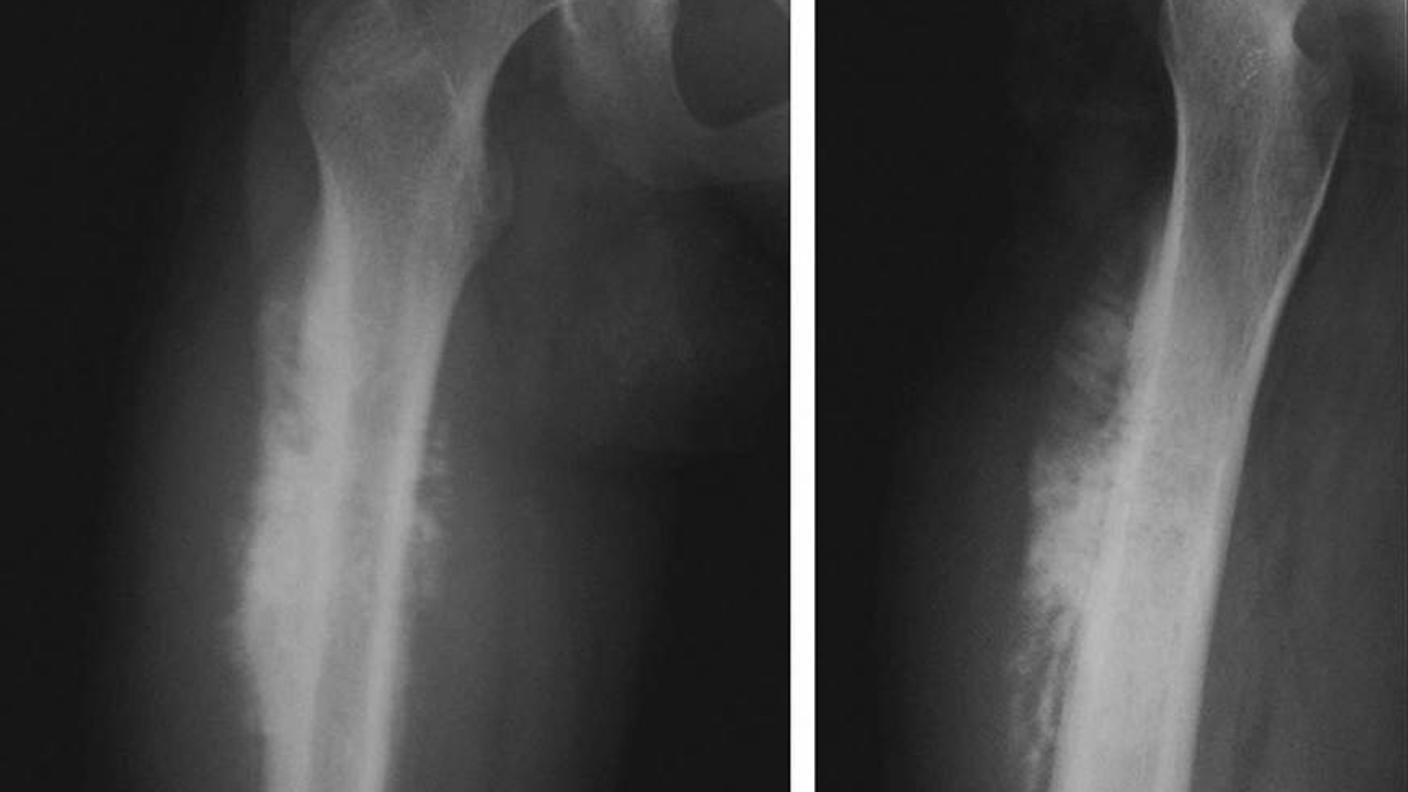Investigators in the Clinical Genetics Branch (CGB) are conducting genetic studies of osteosarcoma to better understand the role that genetic variation plays in risk and patient outcomes, and to identify new genes or genomic regions that may be important in osteosarcoma pathogenesis. The global collaborative effort includes researchers from the Children’s Oncology Group (COG); the University of Minnesota, US; Childhood Cancer Survivor Study, US; Universidad de Navarra, Pamplona, Spain; Institut Curie, France; Istituto Ortopedico Rizzoli, Italy; Royal National Orthopaedic Hospital NHS Trust and University College London Cancer Institute, UK; University of Toronto, Litwin Centre for Cancer Genetics, Canada; Instituto de Oncologia Pediátrica GRAACC/UNIFESP, Brazil; Ankara Oncology and Education Research Hospital, Turkey; The Kinghorn Cancer Centre, Garvan Institute of Medical Research, Australia; Unidad Nacional de Oncologia Pediatrica, Guatemala.
We estimate that approximately 35,000 germline (blood or buccal cell) DNA samples will be genotyped at the NCI Cancer Genomics Research (CGR) Laboratory and subsequently available for genome-wide association analyses and whole-exome sequencing studies. A team of biostatisticians have created a common control set derived from existing studies that will be used to match controls to the cases. We are conducting large genomic case-control and case-case studies to identify novel common and rare germline variants predisposing to osteosarcoma susceptibility and poor patient outcomes.
Our first GWAS of osteosarcoma susceptibility, consisting of 941 osteosarcoma cases and 3,291 cancer-free adult controls of European ancestry, identified two loci significantly associated with osteosarcoma: a locus in the GRM4 gene at 6p21.3 and a locus in the gene desert at 2p25.2. We plan to conduct a larger combined GWAS, twice the size of our original published scan, to identify additional osteosarcoma susceptibility loci. We have additionally used our genotype data to conduct GWAS to determine if genetic variation is associated with osteosarcoma patient outcomes. We identified SNPs in the NFIB locus associated with metastatic osteosarcoma at diagnosis, and discovered a novel locus in GLDC associated with overall osteosarcoma patient survival, independent of metastasis at diagnosis.
CGB investigators have used next-generation sequencing and whole-exome sequencing to determine the frequency of rare germline variants predisposing to osteosarcoma. We have identified a high frequency of rare deleterious variants in TP53 and other cancer-susceptibility genes in osteosarcoma patients, particularly in the youngest patients. Using whole-exome sequencing of 1,244 osteosarcoma cases, we discovered that 28 percent of patients harbor a pathogenic cancer-susceptibility gene variant, and 18 percent were in autosomal dominant genes, including many genes not previously associated with osteosarcoma. We continue to conduct large genomic studies to better understand the role of common and rare genetic variation in osteosarcoma risk and clinical outcomes.
For more information, contact Lisa Mirabello.
